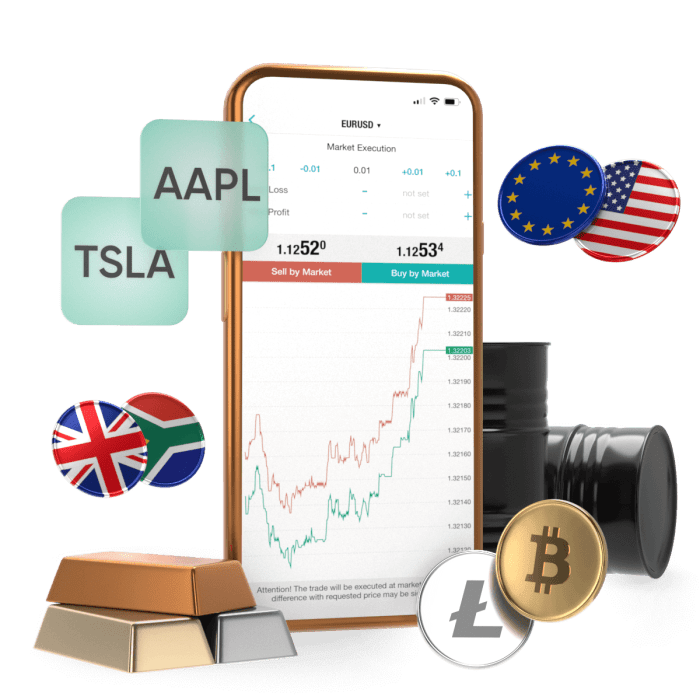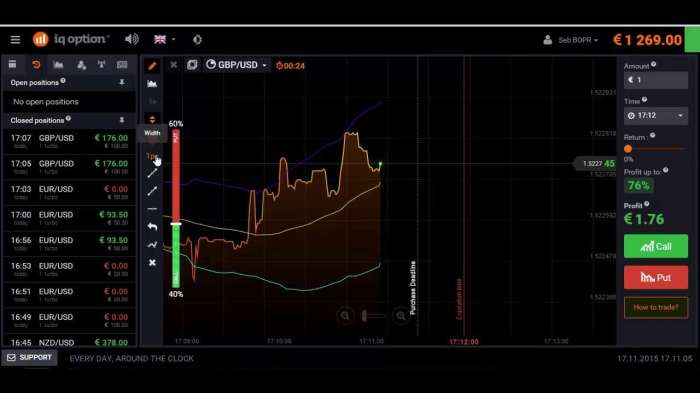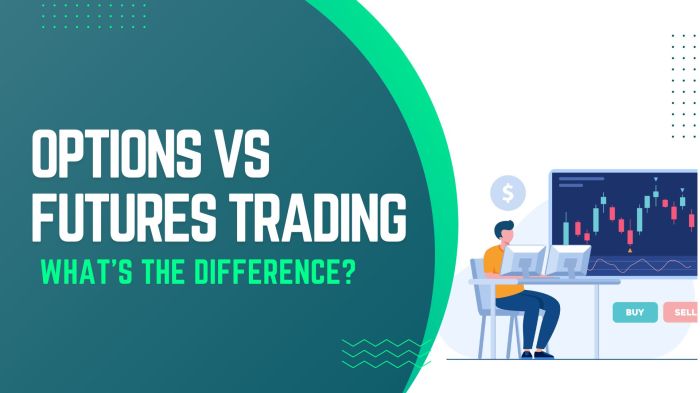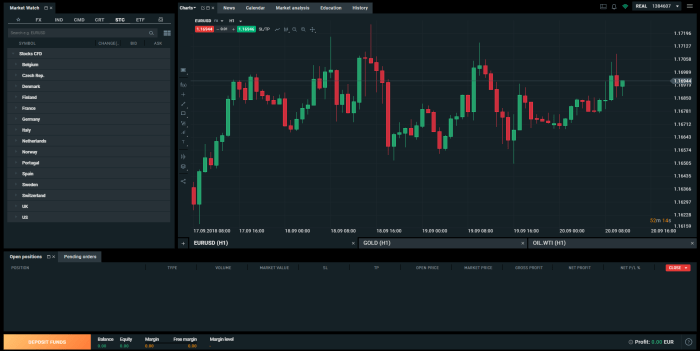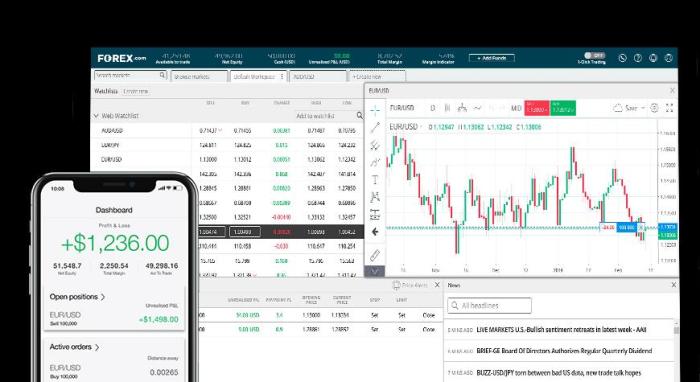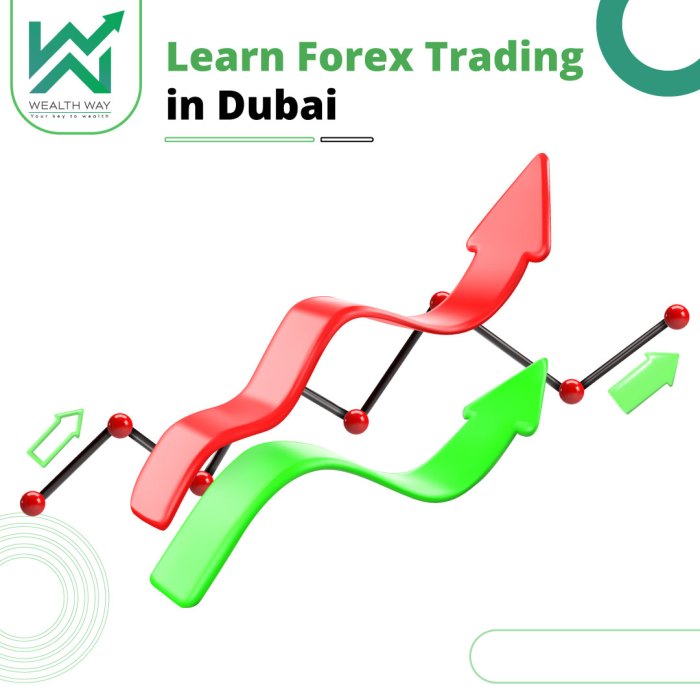
Forex trading in Dubai: Think shimmering skyscrapers, bustling souks, and… a surprisingly robust forex market? You bet. Dubai’s strategic location, coupled with its sophisticated financial infrastructure, makes it a compelling hub for traders worldwide. But navigating this world requires understanding its unique regulatory landscape, the popular trading strategies employed, and the economic forces at play. This isn’t your average desert adventure; this is a deep dive into the exciting, and sometimes risky, world of forex trading in the heart of the UAE.
From understanding the regulatory bodies like the Financial Services Regulatory Authority (FSRA) and their licensing requirements for brokers, to mastering trading strategies like scalping and swing trading within the context of Dubai’s economic indicators (hello, oil prices!), we’ll uncover the secrets to success (and how to avoid the pitfalls). We’ll also explore the technological advancements shaping the market, including the role of mobile trading and high-speed internet, and address the challenges and opportunities unique to this dynamic environment. Get ready to trade your way to a deeper understanding of Dubai’s financial pulse.
Regulatory Landscape of Forex Trading in Dubai

Dubai, a global financial hub, boasts a sophisticated yet evolving regulatory framework for forex trading. Understanding this landscape is crucial for both brokers and traders to ensure compliance and mitigate risks. This section delves into the key regulatory bodies, licensing procedures, compliance standards, and a comparative analysis with other major forex trading centers.
Regulatory Bodies Overseeing Forex Trading in Dubai
The primary regulatory body overseeing forex trading in Dubai is the Central Bank of the UAE (CBUAE). While not directly regulating all aspects of forex trading, the CBUAE’s influence is significant, particularly concerning anti-money laundering (AML) and combating the financing of terrorism (CFT) regulations. Additionally, the Financial Intelligence Unit (FIU) plays a vital role in monitoring and investigating suspicious financial activities related to forex transactions. Other relevant authorities may include the Dubai Financial Services Authority (DFSA) if the forex broker operates within the Dubai International Financial Centre (DIFC), a separate regulatory zone with its own distinct legal framework.
Licensing Requirements for Forex Brokers Operating in Dubai
Securing a license to operate a forex brokerage in Dubai involves a rigorous process. Aspiring brokers must meet stringent capital requirements, demonstrate robust risk management procedures, and provide detailed business plans outlining their operational structure and compliance strategies. The specific requirements vary depending on the regulatory zone (e.g., mainland Dubai versus DIFC). Thorough due diligence on the part of the regulatory bodies is commonplace, ensuring the financial stability and ethical conduct of licensed entities. Failure to meet these requirements can result in denial of a license or even sanctions against existing operators.
Compliance Standards and Regulations Forex Traders Must Adhere To in Dubai
Forex traders in Dubai must comply with various regulations, including those related to AML/CFT, Know Your Customer (KYC) procedures, and reporting requirements. These regulations aim to prevent financial crime and maintain the integrity of the financial system. Traders are expected to maintain accurate records of their transactions and cooperate fully with regulatory investigations. Furthermore, they must be aware of and adhere to any specific rules and guidelines issued by their chosen brokerage firm, which are often aligned with broader regulatory mandates. Non-compliance can lead to penalties, including fines and potential legal action.
Comparison of Dubai’s Regulatory Environment with Other Major Forex Trading Hubs
Dubai’s regulatory environment for forex trading is relatively stringent compared to some other jurisdictions, but less so than others. While certain aspects, such as AML/CFT compliance, are comparable to globally recognized standards, the specific licensing requirements and enforcement mechanisms may differ. For example, London and New York, with their established and mature regulatory frameworks, often have more extensive oversight and stricter penalties for non-compliance. Conversely, some offshore jurisdictions may have significantly less stringent regulations, presenting both opportunities and heightened risks for traders.
Key Regulations for Forex Trading in Dubai
| Regulation Area | Regulatory Body | Key Requirements | Penalties for Non-Compliance |
|---|---|---|---|
| Licensing | CBUAE/DFSA | Capital requirements, risk management plans, business plans | License revocation, fines, legal action |
| AML/CFT | CBUAE, FIU | KYC procedures, transaction monitoring, suspicious activity reporting | Fines, imprisonment, business closure |
| Client Protection | CBUAE/DFSA | Segregation of client funds, dispute resolution mechanisms | Compensation orders, reputational damage |
| Market Conduct | CBUAE/DFSA | Fair trading practices, transparency, disclosure requirements | Fines, sanctions, trading restrictions |
Popular Forex Trading Strategies in Dubai: Forex Trading In Dubai
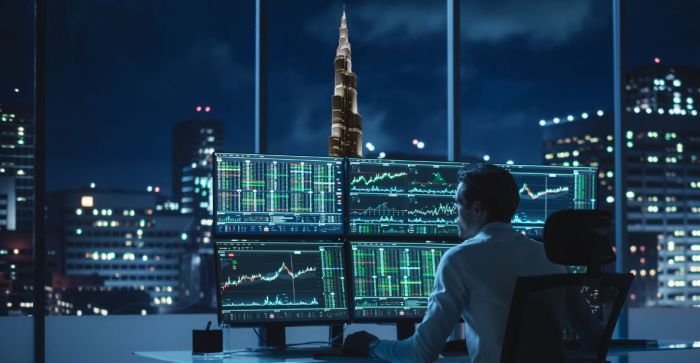
Dubai’s vibrant and dynamic financial market attracts traders employing diverse strategies. The choice of strategy is heavily influenced by individual risk tolerance, capital, and market understanding. While no single strategy guarantees success, understanding the nuances of each approach is crucial for navigating the complexities of the forex market in Dubai.
Prevalence of Different Trading Strategies, Forex trading in dubai
Dubai-based forex traders utilize a range of strategies, with the popularity of each fluctuating based on market conditions and individual trader preferences. Scalping, a short-term strategy focusing on small price movements, is popular among traders with significant experience and access to advanced technology. Swing trading, which involves holding positions for several days or weeks, is favored by those seeking moderate risk and potential returns. Day trading, aiming to profit from intraday price fluctuations, is also prevalent, attracting traders with considerable time and market expertise. Longer-term strategies, such as position trading, are less common due to the inherent risks associated with holding positions over extended periods in a volatile market.
Factors Influencing Strategy Choice in Dubai
Several factors influence the choice of forex trading strategies in Dubai. The high liquidity of the Dubai market allows for quicker execution of trades, making scalping and day trading viable options. However, the relatively high leverage offered by some brokers can also amplify both profits and losses, influencing traders towards strategies that manage risk effectively. Regulatory oversight, while robust, also plays a role; traders need to ensure their chosen strategy complies with all applicable regulations. Finally, individual risk tolerance, trading experience, and available capital are paramount in determining a suitable strategy. A beginner might opt for swing trading to minimize risk, while an experienced trader might prefer scalping to capitalize on short-term opportunities.
Risk Profiles of Popular Forex Trading Strategies
Scalping carries the highest risk due to its reliance on small price movements and frequent trades. Day trading also involves significant risk, as traders must manage positions within a single day. Swing trading offers a more moderate risk profile, as traders hold positions for longer periods, allowing for greater flexibility and time to manage potential losses. Position trading, while potentially offering the highest reward, carries the greatest risk, particularly in volatile markets. The leverage used significantly impacts the risk profile of any strategy; higher leverage magnifies both gains and losses.
Examples of Successful Forex Trading Strategies in Dubai
While specific examples of successful strategies are often kept confidential, we can illustrate general approaches. A successful swing trading strategy might involve identifying long-term trends using technical indicators like moving averages and relative strength index (RSI), then entering positions when price action confirms a trend reversal. A successful day trading strategy could involve utilizing candlestick patterns and support/resistance levels to identify high-probability entry and exit points. Scalping strategies often leverage advanced technical indicators and high-frequency trading algorithms to capitalize on minute price changes.
Summary of Popular Forex Trading Strategies
- Scalping:
- Strengths: High potential for frequent small profits, suitable for experienced traders with access to advanced technology.
- Weaknesses: High risk due to frequent trading and reliance on small price movements, requires significant time commitment and discipline.
- Day Trading:
- Strengths: Potential for significant daily profits, flexibility to adjust positions throughout the day.
- Weaknesses: High risk due to intraday market volatility, requires significant market knowledge and time commitment.
- Swing Trading:
- Strengths: Moderate risk, allows for greater flexibility and time to manage positions, suitable for traders with less time commitment.
- Weaknesses: Lower frequency of trades compared to scalping and day trading, potential for missing out on short-term opportunities.
Economic Factors Influencing Forex Trading in Dubai
Dubai’s forex market, a bustling hub of global finance, is significantly influenced by a complex interplay of economic factors. Understanding these dynamics is crucial for traders navigating this vibrant market. The UAE Dirham’s peg to the US dollar, coupled with the region’s dependence on oil and its susceptibility to global economic shifts, creates a unique and often volatile trading environment.
Oil Prices and the UAE Dirham
The UAE Dirham (AED) is pegged to the US dollar at a fixed exchange rate of 3.6725 AED per USD. This peg provides stability, but it also means that the Dirham’s value is indirectly influenced by the fluctuations of the US dollar, particularly against other major currencies. However, the most significant economic factor affecting the AED, and consequently the Dubai forex market, is the price of oil. The UAE is a major oil producer, and oil revenues constitute a substantial portion of its economy. Rising oil prices generally strengthen the AED as it boosts the country’s foreign exchange reserves and increases demand for the Dirham. Conversely, falling oil prices can weaken the Dirham, as it reduces government revenue and potentially impacts investor confidence. This relationship is not always linear, however, as other global economic factors can also play a significant role.
Global Economic Events and the Dubai Forex Market
Dubai’s forex market is intrinsically linked to the global economy. Major global events, such as changes in US interest rates, shifts in global economic growth, or geopolitical instability, can significantly impact the AED and trading activity in Dubai. For example, a global recession might lead to reduced demand for oil and weaken the AED, while a surge in global growth could strengthen it. Similarly, uncertainty caused by geopolitical events can lead to increased volatility in the market as investors seek safe haven assets. The interconnected nature of the global financial system means that even seemingly distant events can have a ripple effect on the Dubai forex market.
Government Policies and Forex Trading Activity
The UAE government plays a significant role in shaping the forex market environment. Monetary policies implemented by the Central Bank of the UAE, including interest rate adjustments and foreign exchange reserve management, directly impact the AED’s value and trading conditions. Fiscal policies, such as government spending and taxation, also indirectly influence the market by affecting economic growth and investor sentiment. Regulatory measures aimed at ensuring financial stability and preventing market manipulation also play a crucial role in shaping the forex trading landscape in Dubai. These policies are designed to maintain stability and attract foreign investment, ultimately impacting the overall activity within the market.
Correlation Between Economic Indicators and Forex Movements in Dubai
The following table illustrates the general correlation between key economic indicators and forex movements in Dubai. It’s important to note that these correlations are not always absolute, and other factors can influence the market.
| Economic Indicator | Impact on AED Value | Impact on Forex Trading Volume | Example |
|---|---|---|---|
| Oil Prices (Brent Crude) | Positive Correlation (higher prices strengthen AED) | Increased volume during price volatility | A sharp increase in oil prices often leads to increased demand for AED. |
| US Dollar Index (DXY) | Positive Correlation (stronger USD strengthens AED) | Increased volume due to the peg | A rising DXY generally leads to a stronger AED, influencing trading strategies. |
| Global Economic Growth | Positive Correlation (higher growth strengthens AED) | Increased volume during periods of growth | Strong global growth often boosts demand for commodities and the AED. |
| UAE Interest Rates | Positive Correlation (higher rates strengthen AED) | Potentially increased volume due to higher returns | Increased interest rates can attract foreign investment and strengthen the AED. |
Technological Aspects of Forex Trading in Dubai
Dubai’s burgeoning forex market is heavily reliant on advanced technology, mirroring global trends but with a unique local flavor shaped by its international business environment and tech-savvy population. The speed and efficiency of transactions are paramount, driving the adoption of sophisticated platforms and high-speed connectivity.
Prevalent Trading Platforms and Technologies
Traders in Dubai utilize a diverse range of platforms, reflecting individual preferences and trading styles. Popular choices include MetaTrader 4 (MT4) and MetaTrader 5 (MT5), known for their robust charting tools, automated trading capabilities (Expert Advisors or EAs), and large community support. Many also use cTrader, appreciated for its speed and advanced charting features, particularly beneficial for scalping strategies. Beyond these, numerous proprietary platforms offered by larger brokerage firms provide access to advanced analytics and research tools, often integrated with news feeds and economic calendars. These platforms often incorporate artificial intelligence (AI) for enhanced analysis and risk management.
The Role of Mobile Trading Apps
Mobile trading apps have become indispensable for Dubai-based forex traders. The convenience of accessing the market anytime, anywhere, is particularly appealing in a city known for its fast-paced lifestyle and global connectivity. Most major brokers offer dedicated mobile apps mirroring the functionality of their desktop platforms, allowing traders to execute trades, monitor positions, and access market data on their smartphones and tablets. This accessibility fuels the growth of forex trading, especially among younger, tech-savvy individuals.
Importance of High-Speed Internet Connectivity
High-speed internet is not just beneficial; it’s essential for successful forex trading in Dubai. The forex market operates 24/5, and even milliseconds can make a significant difference in trade execution, particularly for scalpers and those using automated trading systems. Dubai’s robust infrastructure generally provides reliable high-speed internet, but traders still need to ensure their connection is stable and fast enough to handle the demands of real-time trading and data streaming. Slow or unreliable internet can lead to missed opportunities and potentially significant financial losses.
Advantages and Disadvantages of Different Trading Platforms
The choice of trading platform is a crucial decision. MT4 and MT5 offer wide community support and a vast library of EAs, but may lack some of the advanced features found in proprietary platforms. cTrader’s speed is a major advantage for scalpers, but its user interface might not be as intuitive for beginners. Proprietary platforms often boast superior analytics and research tools but might come with higher fees or require a minimum deposit. Ultimately, the best platform depends on the trader’s experience, trading style, and specific needs.
Technological Innovations Impacting the Forex Trading Landscape
Several technological advancements are reshaping the Dubai forex market. The increasing use of AI-powered trading tools and algorithmic trading strategies is one example. These systems can analyze vast amounts of data to identify trading opportunities and execute trades with greater speed and precision than human traders. Blockchain technology also holds potential for improving transparency and security in forex transactions, potentially streamlining processes and reducing risks. Furthermore, the rise of social trading platforms allows traders to copy the strategies of successful traders, offering a learning opportunity and a potential avenue for increased returns, though also carrying inherent risks.
Challenges and Opportunities in Dubai’s Forex Market
Dubai’s forex market, while offering significant potential, presents a unique blend of challenges and opportunities for traders, both individual and institutional. Its strategic location, robust infrastructure, and growing economy create a fertile ground for growth, but navigating the regulatory landscape and managing inherent market risks requires careful planning and execution.
Regulatory Hurdles and Market Volatility
The regulatory environment in Dubai, while evolving, can present challenges. Traders need to be fully compliant with the regulations set by the Central Bank of the UAE and other relevant authorities. This includes understanding and adhering to anti-money laundering (AML) and know-your-customer (KYC) regulations. Furthermore, the inherent volatility of the forex market, amplified by global economic events and geopolitical factors, necessitates robust risk management strategies. For instance, the impact of oil price fluctuations, a key component of the UAE economy, can significantly affect the value of the Dirham and other currency pairs. Sudden shifts in global sentiment can also lead to rapid and substantial price movements, requiring traders to be prepared for both potential gains and losses.
Opportunities for Individual and Institutional Traders
Dubai’s strategic location acts as a gateway to both East and West, making it an attractive hub for forex trading. The presence of numerous international banks and financial institutions provides access to a deep and liquid market. For individual traders, this translates into opportunities to access a wide range of currency pairs and trading instruments with relatively low transaction costs. Institutional traders, on the other hand, can leverage Dubai’s infrastructure to establish regional headquarters and benefit from the growing number of high-net-worth individuals and institutional investors in the region. The potential for growth in the region further strengthens the appeal of the Dubai forex market for both types of traders.
Potential for Growth and Development
Dubai’s ambitious economic diversification plans, coupled with its focus on technological advancement, contribute to the potential for significant growth in its forex market. The development of advanced trading platforms and technologies, coupled with the government’s efforts to attract foreign investment, will further enhance market liquidity and efficiency. The increasing adoption of fintech solutions can also streamline trading processes and reduce operational costs. Examples include the growing use of algorithmic trading and the expansion of online brokerage services catering to both retail and institutional clients. This growth will likely attract more participants, leading to increased trading volumes and greater market depth.
Risk Mitigation Strategies
Effective risk management is crucial for success in the Dubai forex market. Traders should employ strategies such as diversification of portfolios, setting stop-loss orders to limit potential losses, and utilizing leverage cautiously. Thorough market research and analysis, including understanding the influence of economic factors and geopolitical events, are essential. Regular monitoring of positions and adapting trading strategies based on market conditions are also vital. Furthermore, staying informed about regulatory changes and compliance requirements will help traders avoid penalties and maintain operational integrity.
Leveraging Opportunities in Dubai’s Forex Market
To effectively leverage the opportunities in Dubai’s forex market, traders should focus on continuous learning and professional development. Staying updated on market trends, economic indicators, and geopolitical events is paramount. Building strong relationships with reputable brokers and financial institutions can provide access to valuable insights and resources. Utilizing advanced trading tools and technologies, such as algorithmic trading platforms and automated trading systems, can enhance efficiency and potentially improve trading outcomes. Finally, a disciplined approach to risk management and a long-term perspective are essential for sustainable success in this dynamic market.
The Role of Education and Training in Dubai’s Forex Market
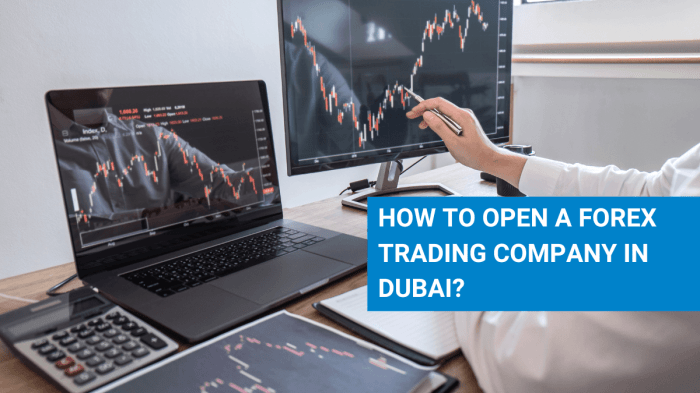
Dubai’s burgeoning forex market necessitates a robust educational infrastructure to support its growth and attract skilled traders. The availability and quality of forex trading education directly impact the market’s sophistication, risk management practices, and overall success. A well-trained trader base contributes to a more stable and efficient market.
Availability of Forex Trading Education and Training Resources in Dubai
Numerous institutions and providers offer forex trading education in Dubai. These range from established financial training academies offering comprehensive courses and certifications to online platforms delivering self-paced learning modules. Many brokerage firms also provide their clients with educational resources, often integrated into their trading platforms. The availability of both formal and informal learning opportunities caters to a diverse range of learners, from beginners to experienced traders seeking to enhance their skills. However, the quality and rigor of these programs vary considerably, underscoring the need for careful evaluation before enrollment.
Importance of Continuous Learning and Skill Development for Forex Traders in Dubai
The forex market is dynamic and constantly evolving. Geopolitical events, economic shifts, and technological advancements continuously impact market conditions. Therefore, continuous learning is not just beneficial but essential for forex traders in Dubai to remain competitive and profitable. Staying abreast of the latest market trends, trading strategies, and risk management techniques is crucial for mitigating losses and capitalizing on opportunities. Continuous professional development also builds resilience and adaptability in the face of market volatility. A commitment to lifelong learning differentiates successful traders from those who struggle to navigate the complexities of the forex market.
Types of Educational Programs and Certifications Available
Educational programs in Dubai’s forex market span various formats and levels of expertise. Introductory courses cover fundamental concepts like currency pairs, trading platforms, and basic technical analysis. More advanced programs delve into sophisticated trading strategies, risk management techniques, and algorithmic trading. Some institutions offer specialized certifications, such as the Chartered Market Technician (CMT) designation, which recognizes a high level of proficiency in technical analysis. These certifications can enhance credibility and marketability for aspiring forex professionals. Workshops and seminars provide focused training on specific aspects of forex trading, often led by experienced traders or industry experts.
Comparison of Learning Methods
Online courses offer flexibility and accessibility, allowing learners to study at their own pace and convenience. However, they may lack the interactive learning environment and personalized feedback provided by in-person workshops or mentorship programs. Workshops offer structured learning and opportunities for interaction with instructors and peers. Mentorship programs provide personalized guidance and support, allowing learners to benefit from the experience and insights of seasoned traders. The effectiveness of each method depends on individual learning styles and preferences, as well as the specific goals and learning objectives. A blended learning approach, combining online resources with in-person workshops or mentorship, often proves most effective.
Hypothetical Forex Trading Education Program Tailored to the Dubai Market
A comprehensive forex trading education program designed for the Dubai market should incorporate several key elements. The curriculum should cover fundamental forex concepts, including currency pairs, trading platforms, and basic technical and fundamental analysis. It should also address the specific economic and political factors influencing the forex market in the Middle East and the unique regulatory landscape in Dubai. The program should emphasize risk management techniques, including position sizing, stop-loss orders, and diversification strategies. The program would also integrate case studies of successful and unsuccessful forex trades in the Dubai market. Practical components, such as simulated trading exercises and real-time market analysis sessions, would be crucial. Finally, mentorship opportunities with experienced traders familiar with the Dubai market would provide valuable personalized guidance.
Ending Remarks
So, is forex trading in Dubai the right move for you? The answer, like the Dubai skyline, is complex and multifaceted. While the potential rewards are significant, navigating the regulatory landscape and understanding the economic factors are crucial. Thorough education, a well-defined strategy, and a healthy dose of risk management are your best allies in this exciting yet challenging market. Dubai’s forex scene offers a unique blend of opportunity and risk – it’s up to you to make the most of it. Remember, knowledge is power, and in the world of forex, knowledge is your most valuable asset.
Obtain a comprehensive document about the application of arbitrage trading forex that is effective.
Check que es trading forex to inspect complete evaluations and testimonials from users.
